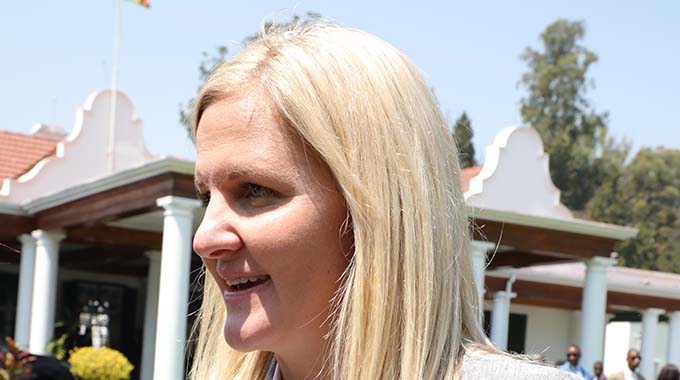Editorial Comment: Plans to relocate Idai victims noble

The announcement by President Mnangagwa on Wednesday that Government had since identified land to relocate hundreds of people who were displaced by Cyclone Idai is timely. The relocation signals a new beginning for the survivors and help them cope with this devastating impact of climatic occurrence. It is important that traditional leaders from the affected areas, would be part of the relocation programme, which will be an ongoing exercise until normalcy returns to the affected areas and people.
As the President alluded to, traditional leaders are a critical constituent of the whole relocation exercise, since they are the custodians of traditional norms and values within their jurisdiction. Their input, through consultations and possibly conducting rituals will shape the relocation discourse, and that calls for regular engagement with the Government.
The President’s visit and engagement with the traditional leaders this week set the tone for any rituals that the leaders may need to conduct, and this should be done with speed, to enable the relocation process to start.
While cultural issues are important in our local customs, they should not be a hindrance to the success of the relocation exercise, to ensure that life returns to normalcy as quickly as possible in the affected areas.
It is within the same spirit that both the traditional leaders and the Government will need to rethink in both urban and rural planning to factor in emerging concerns of natural disasters. With the effects of climate change pervading borders and nations, across the globe, there could be more from where this came from.
In the wake of the devastating effects of Cyclone Idai one of the major considerations would be ensuring that people are settled on higher ground, among other contemplations.
Drawing lessons from low lying areas like Muzarabani, Middle Sabi, Tsholotsho and Malipati, which have been perennially hit by floods hugely impacting on infrastructure and livelihoods, flood plains are a huge challenge that should be avoided at all costs.
Relocation to higher ground will need to be matched with strong and durable infrastructure that should withstand some of the inevitable weather conditions such as heavy winds, downpours and even flooding.
It is gratifying to note there are several people across the board who have pledged material support for the affected communities. This can be used to build solid and strong structures in the affected areas.
Suffice to say, the relocation exercises are often met with challenges with attitudes of the affected communities being a major hindrance.
They are likely to be some pockets of resistance from people who might have cultural and personal attachment to the areas. The traditional leaders will need to gently remind people that painful as it might be, their safety is of paramount importance because burial sites will always be lost to history and the memory cast to the winds.
With some villagers coming from a season so much devoid of plenty, where they had been basking in the bliss of good farming seasons, they might want to stall the exercise, ignoring the fact that is for their own good.
There are of course families and communities that had been deriving their hope and inspiration from the good harvest they had been enjoying over the years and may not be too eager to relocate to safer grounds. Good planning and consultation is crucial to ensure that the affected families are resettled in areas where they will still be able to eke out a living.
As the American geographer Gilbert White wisely observed, “Floods are acts of God; flood losses are largely acts of man”. We might not control natural disasters, but we ought to be responsible to the damages inflicted on us, and that require good disaster management strategies.










Comments